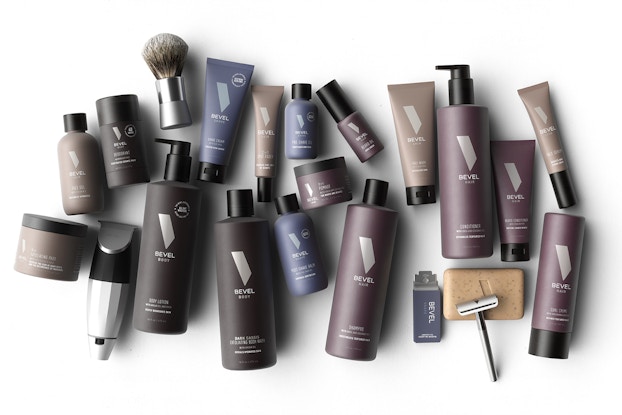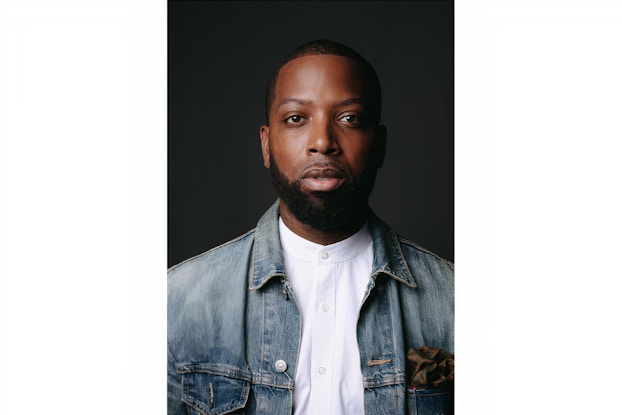
How men’s grooming startup Bevel landed national retail accounts and the backing of Procter & Gamble:
- Tristan Walker conceived startup Bevel to serve an untapped niche in the men’s grooming category: shaving products that did not cause razor bumps, designed expressly for Black men.
- Walker built a team that reflects the diversity of its customer base, fine-tuning its product assortment over time by listening to the feedback of its target consumers via weekly emails.
- Target and Procter & Gamble, each seeking to expand their brand portfolios among communities of color, saw Bevel as an opportunity to do just that: The retailer launched the brand in 2016, and the consumer products giant purchased Bevel’s parent company, Walker & Company, in 2018.
In 2013, Tristan Walker, who’d already made a name for himself in the world of Silicon Valley tech as business development director for location app Foursquare, was an entrepreneur in residence at venture capital firm Andreessen Horowitz, known for backing brands like Airbnb and Instagram.
It’s where he incubated a startup idea that sprung from a deeply personal place.
Walker long struggled to find shaving products that didn’t cause razor bumps — so he sought to bring them to market himself.
That year Walker launched Bevel, a single-blade razor system designed specifically for Black men and inspired by a lifetime of shaving irritation, carving a niche alongside hot direct-to-consumer brands like Dollar Shave Club and Harry’s in the $2.5 billion U.S. men’s shaving market, according to Euromonitor estimates.
Today, Bevel grooming and now personal care products are sold in thousands of retail doors from Target and CVS to Sally Beauty, and in 2018, became a Procter & Gamble brand when the consumer products giant purchased parent company Walker & Company.
Bevel landed big retail and P&G’s brand portfolio by serving the unmet personal care needs of a demographic Walker embodies, leveraging a team that both mirrors its customer base and makes listening to their feedback central to its business strategy, said Walker, who not only continues to lead his namesake company as CEO, but is the first Black CEO in P&G’s 180-year history. “One thing that was really important to me was to do something that I felt uniquely positioned to do, where my own lived experience could help inform what I was hoping to create,” Walker told CO—. “Entrepreneurship is hard enough. The way to make it less difficult is to do something that comes from an authentic place.”
Leveraging lived experience — and startup know-how — to carve an untapped business niche
Knowing the market your startup intends to serve is Business 101 for any entrepreneur. Walker took the notion a step further by being a stand-in for his target customer.
For Walker, 15 years of post-shaving razor bumps ended one day, thanks to a single shave by a double-edged safety razor suggested by a friend. “I woke one morning without razor bumps on my face,” he said. “It was an incredible epiphany for me, that moment of truth.”
The moment yielded Bevel’s business model and laid bare the opportunity to serve a vast addressable market. It was about growing a business for the “40-plus million Black folks that potentially have to deal with this issue, as well as well as non-folks of color who have to deal with it, too,” Walker said.
Walker summoned his insider, tech-world savvy to help nudge Bevel from a nascent idea to an up-and-running, direct-to-consumer brand.
“Being in Silicon Valley at the time to be able to raise money [to launch] a company like this, I felt uniquely positioned to be doing this at that particular time,” Walker said.
Walker built a company staffed largely by people of color, with BIPOC folks topping the leadership ranks, so that “the diversity of our employee base reflects the diversity of our customers,” he said.
One thing that was really important to me was to do something that I felt uniquely positioned to do, where my own lived experience could help inform what I was hoping to create. Entrepreneurship is hard enough. The way to make it less difficult is to do something that comes from an authentic place.Tristan Walker, founder and CEO, Bevel
Listening to customers every day — and having ‘humility’ — opens door to Target stores
By 2016, Bevel had been sending out weekly emails to customers, asking them to rate its products on a scale of one to 10 and answer questions like, “How likely are you to recommend this product to a friend?”
Walker, who’d made it a practice to read customer comments, stumbled on two glowing reviews, both from Target email addresses. “It turns out the first gentleman was the head of personal care, and the second gentleman was the head of shave for Target,” he said. They were Bevel fans. So, he reached out, and three months later, “we were on Target’s shelf,” he said, expanding Bevel from an online-only startup to multichannel brand.
Target saw in Bevel an opportunity to enrich its appeal among Black consumers — which it had been courting across product categories — in the men’s grooming aisle.
“First lesson learned, even as CEO, [is] read those customer comments— you don’t know the opportunities that might come out of it,” Walker said. “Had I not read those comments, we would not be in Target today, he said. “It’s about having the humility to know that you haven’t figured it out yet.”
Answering customer emails and calls himself meant “understanding any pitfalls folks have engaging with our products or our experiences, so we were able to fix them more quickly,” just as Bevel leveraged customer feedback to maximize its product hits, he said.
Responding to customer tickets is now baked into Walker & Company’s employee onboarding process. “The first week a colleague comes to the company, they have to work with our customer success team,” Walker said.

Becoming a Procter & Gamble Brand and navigating business headwinds: ‘Simplify your infrastructure’
Two years after its brick-and-mortar debut, Procter & Gamble came calling. Bevel piqued P&G’s interest as it was “uniquely prioritizing and celebrating the needs of the Black male guest” in the personal care category in a way no other brand was, Walker said.
What’s more, “Our values matched, and our missions were very similar,” he said: Bevel’s on a quest to make health and beauty easy for people of color, and Procter & Gamble’s goal is to improve the lives of people every day. “They serve five billion people around the world, the majority of whom look closer to me,” he said. “So there’s a very symbiotic relationship.”
While that relationship has been invaluable to Bevel in navigating inflation and the supply chain disruptions that have rocked the business sector, startups that don’t have the capital and purchasing power of a consumer products giant would be wise to simplify their operations to counter business headwinds, Walker said.
“A lot of us are doing too many things; there has to be a back-to-basics experience,” he said. “The best way to do that is to simplify your infrastructure,” for example, trimming the number of SKUs to the number of manufacturers you work with if your business is a consumer products brand, he said.
Entrepreneurship and the empathy factor: ‘Do you want to start a company, or do you want to run it?’
Would-be entrepreneurs should be clear-eyed on what it really takes to run a business on a day-to-day basis. Prompting aspiring business owners to question their entrepreneurial motivation, Walker likes to ask them, “‘Do you want to start a company, or do you want to run it? ‘Ninety-nine percent of the time, they don’t have an answer,’” he said. The reality is that running a company means “you have to expand your capacity for empathy in ways you would have never anticipated before.”
Walker tells entrepreneurs, “Write down what your personal values are. If you don’t know who you are, your company won’t know who you are,” he said.
CO— aims to bring you inspiration from leading respected experts. However, before making any business decision, you should consult a professional who can advise you based on your individual situation.
Follow us on Instagram for more expert tips & business owners’ stories.
CO—is committed to helping you start, run and grow your small business. Learn more about the benefits of small business membership in the U.S. Chamber of Commerce, here.









